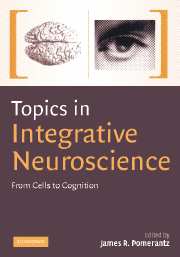Book contents
- Frontmatter
- Contents
- List of contributors
- Preface
- Overview of neuroscience, choice and responsibility
- 1 Neuroscience, choice and responsibility
- PART I HIGHER ORDER PERCEPTION
- PART II LANGUAGE
- Introduction to Language Section
- 5 Varying degrees of plasticity in different subsystems within language
- 6 The functional architecture of speech perception
- 7 Varieties of silence: the impact of neuro-degenerative diseases on language systems in the brain
- 8 Why is language unique to humans?
- PART III MEMORY SYSTEMS
- PART IV SENSORY PROCESSES
- Index
- Plate section
- References
5 - Varying degrees of plasticity in different subsystems within language
Published online by Cambridge University Press: 08 August 2009
- Frontmatter
- Contents
- List of contributors
- Preface
- Overview of neuroscience, choice and responsibility
- 1 Neuroscience, choice and responsibility
- PART I HIGHER ORDER PERCEPTION
- PART II LANGUAGE
- Introduction to Language Section
- 5 Varying degrees of plasticity in different subsystems within language
- 6 The functional architecture of speech perception
- 7 Varieties of silence: the impact of neuro-degenerative diseases on language systems in the brain
- 8 Why is language unique to humans?
- PART III MEMORY SYSTEMS
- PART IV SENSORY PROCESSES
- Index
- Plate section
- References
Summary
There are periods in development during which experience plays its largest role in shaping the eventual structure and function of mature language-processing systems. These spans of peak cortical plasticity have been called “sensitive periods.” Here, we describe a series of studies investigating the effects of delays in second language (L2) acquisition on different subsystems within language. First, we review the effects of the altered language experience of congenitally deaf subjects on cerebral systems important for processing written English and American Sign Language (ASL). Second, we present behavioral and electrophysiological studies of L2 semantic and syntactic processing in Chinese-English bilinguals who acquired their second language over a wide range of ages. Third, we review semantic, syntactic, and prosodic processing in native Spanish and native Japanese late-learners of English. These approaches have provided converging evidence, indicating that delays in language acquisition have minimal effects on some aspects of semantic processing. In contrast, delays of even a few years result in deficits in some types of syntactic processing and differences in the organization of cortical systems used to process syntactic information. The different subsystems of language which rely on different cortical areas, including semantic, syntactic, phonological, and prosodic processing, may have different developmental time courses that in part determine the different sensitive period effects observed.
Humans, in comparison to other animals, go through a protracted period of post-natal development that lasts at least 15 years (Chugani & Phelps, 1986; Huttenlocher, 1990).
Information
- Type
- Chapter
- Information
- Topics in Integrative NeuroscienceFrom Cells to Cognition, pp. 125 - 153Publisher: Cambridge University PressPrint publication year: 2008
References
Accessibility standard: Unknown
Why this information is here
This section outlines the accessibility features of this content - including support for screen readers, full keyboard navigation and high-contrast display options. This may not be relevant for you.Accessibility Information
- 3
- Cited by
